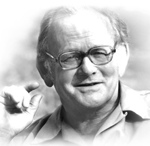It is difficult for those of us living today to realize that the idea of progress is an extremely young idea. It is a sense that, viewed over a long period of time, there is a progressive improvement in life; rather than “the old times were better” or “that which hath been is that which shall be.”
Progress is primarily a feeling that governs a person’s view of the world and motivates his actions. The feeling has been immensely important in the development of the Western world during the last two hundred years.
The idea of biological evolution was accepted by some as representing progress of a sort; a progression of species over time leading from simple animal forms to the pinnacle of natural selection, the human species. But is biological evolution progress?
Darwinian adaptation is not in its essence a progressive change, but merely a dynamic way of preserving life as conditions change. The “fittest” in a population of organisms are those that can best survive to reproduce under given environmental conditions. When those conditions change those previously “less fit” may become the “fittest” and their progeny will dominate. There is no direction to the change.
When a species of bacteria becomes resistant to an antibiotic can we call that change progress? We would say at once, Not from the human point of view—since the change makes the human situation more difficult. Is the change progressive from the point of view of the bacteria? It is tempting to say, Yes. In response to the threat of a new selecting agent, a new and superior form comes out of the bacterial population.
But it is important to note that the new form is superior only in the new environment. If it is set in competition with the old form in an environment that is lacking the special selecting agent, the resistant strain is speedily displaced by the nonresistant strain through a process of natural selection. Is this progress? It does not seem quite like what we have in mind when we use the word.
The concept of progress, for all its historical importance in sheltering the idea of evolution, is not easily applicable to facts of biology. There may be a sense in which it is useful to say that progress has occurred; but we have not yet discovered it. Perhaps we will later. For the present, it is best to agree that biological evolution does not necessarily constitute progress.


